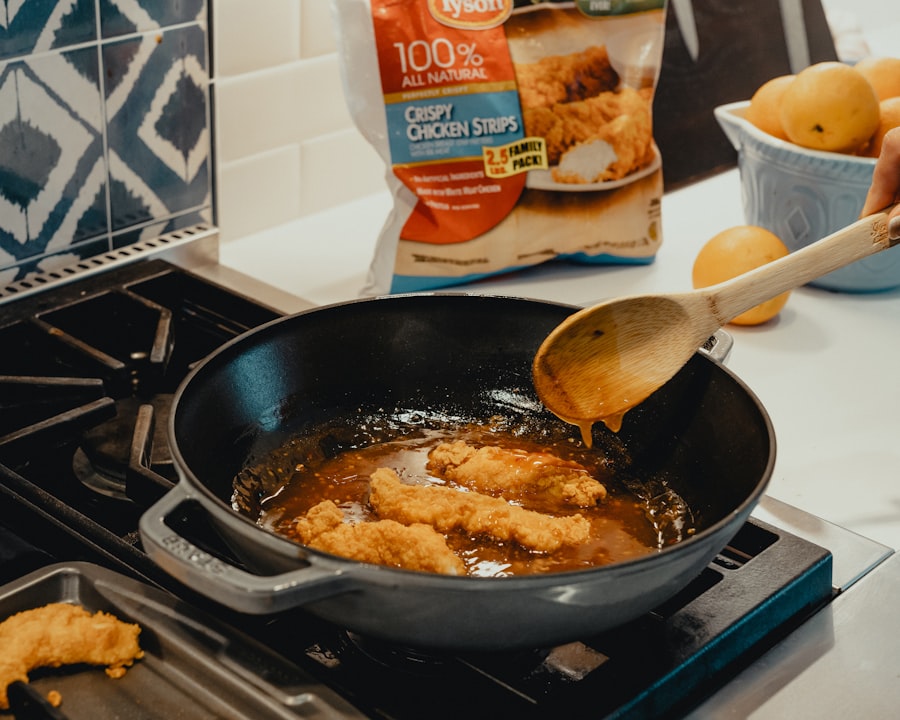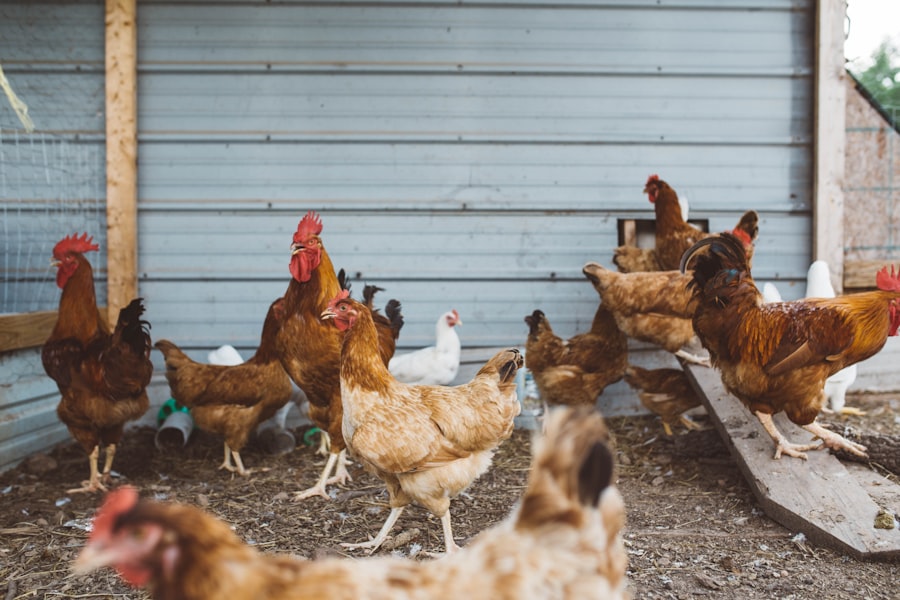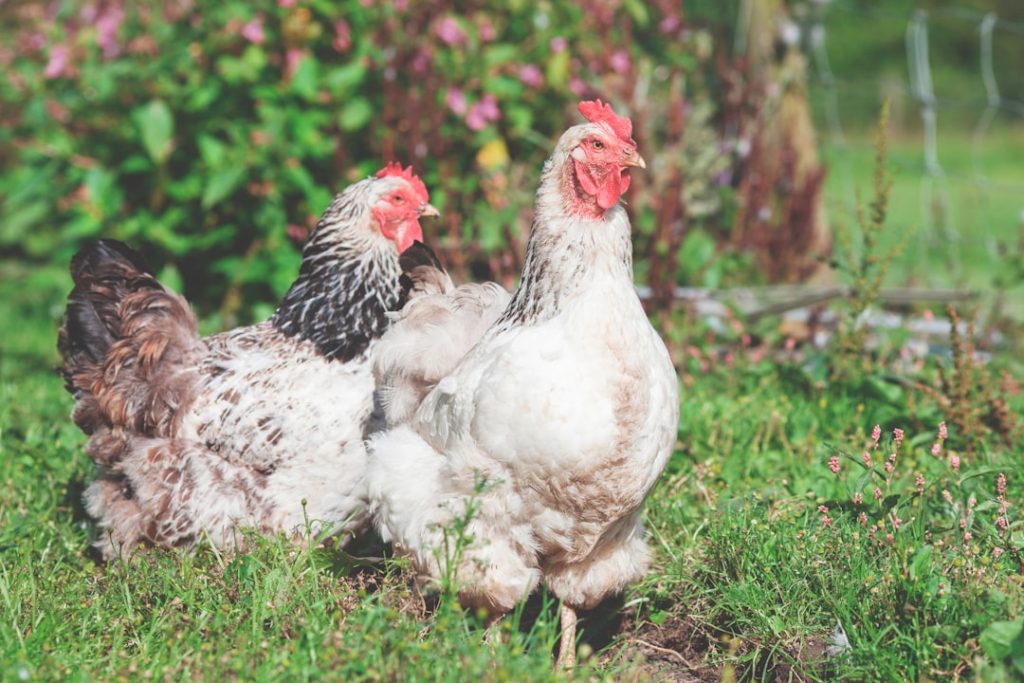Freezing chicken is an effective method for long-term preservation, offering convenience and cost-effectiveness. This process allows consumers to take advantage of bulk purchases, sales, and leftover meals, reducing food waste and ensuring a readily available supply of poultry. Proper freezing techniques are crucial for maintaining the quality and safety of the chicken.
This article will examine the following aspects of freezing chicken:
1. Guidelines for freezing chicken
2. Factors influencing freezing time
3.
Best practices for optimal freezing results
4. Proper storage methods for frozen chicken
5. Tips for utilizing frozen chicken effectively
By understanding these key points, consumers can maximize the benefits of freezing chicken while ensuring food safety and quality.
Table of Contents
Key Takeaways
- Freezing chickens is a convenient way to preserve them for later use and minimize food waste.
- When freezing chickens, it is important to follow proper guidelines to ensure food safety and quality.
- Factors such as the size of the chicken, packaging, and freezer temperature can affect the freezing time.
- Best practices for freezing chickens include properly packaging and labeling them before placing them in the freezer.
- Properly storing frozen chickens in the freezer can help maintain their quality and prevent freezer burn.
Guidelines for Freezing Chickens
Freeze Chicken Promptly
Freezing chicken as soon as possible after purchasing or cooking is crucial. This prevents the growth of bacteria and keeps the chicken fresh.
Proper Packaging for Freezing
Proper packaging is essential for maintaining the quality of frozen chicken. Use airtight containers or freezer bags to prevent freezer burn and preserve the flavor and texture of the chicken. Don’t forget to label the packages with the date of freezing to keep track of how long the chicken has been in the freezer.
Thawing Frozen Chicken Safely
When you’re ready to use frozen chicken, it’s essential to thaw it properly. You can thaw it in the refrigerator or use the defrost setting on a microwave. By following these guidelines, you can ensure your frozen chicken remains safe and delicious.
Factors Affecting Freezing Time

The time it takes to freeze chickens can be affected by several factors. The size and thickness of the chicken pieces will affect the freezing time, with larger pieces taking longer to freeze than smaller ones. The temperature of the freezer will also affect freezing time, with lower temperatures resulting in faster freezing.
Additionally, the packaging used for freezing can affect freezing time, with airtight containers or freezer bags allowing for faster freezing than loose wrapping. The placement of the chicken in the freezer can also affect freezing time, with items placed closer to the freezer’s cooling element freezing faster than those placed further away. By understanding these factors, you can better plan for the freezing of your chickens and ensure that they freeze in a timely manner.
Best Practices for Freezing Chickens
When it comes to freezing chickens, there are some best practices that can help ensure that the process goes smoothly and that the chicken remains safe and delicious. One best practice is to portion the chicken before freezing it. This can be done by cutting whole chickens into pieces or separating chicken breasts, thighs, and drumsticks before freezing.
Portioning the chicken makes it easier to thaw and use only what is needed at a time. Another best practice is to remove as much air as possible from the packaging before freezing. This can be done by using a vacuum sealer or pressing out as much air as possible from freezer bags before sealing them.
Removing air from the packaging helps prevent freezer burn and maintains the quality of the chicken. Finally, it’s important to freeze chicken at its peak freshness to ensure that it maintains its flavor and texture when thawed and cooked. By following these best practices, you can ensure that your frozen chicken remains safe and delicious.
How to Properly Store Frozen Chickens
Properly storing frozen chickens is essential for maintaining their quality and safety. After freezing the chicken in airtight containers or freezer bags, it’s important to store them in the coldest part of the freezer to ensure that they freeze quickly and remain at a consistent temperature. It’s also important to organize the freezer to prevent cross-contamination between raw and cooked foods.
This can be done by placing raw chicken on lower shelves to prevent any drips from contaminating other foods below. Additionally, it’s important to keep an eye on the expiration dates of frozen chicken and use older packages first to prevent any waste. By properly storing frozen chickens, you can ensure that they remain safe and delicious for future use.
Tips for Using Frozen Chickens

Thawing Frozen Chicken
When thawing frozen chicken, it’s recommended to do so in the refrigerator rather than at room temperature. This allows for a slow and even thaw, which helps maintain the quality of the chicken.
Using Thawed Chicken
Once thawed, it’s crucial to use the chicken within 1-2 days for optimal quality and safety. This ensures that the chicken remains fresh and reduces the risk of bacterial growth.
Cooking Frozen Chicken
When cooking frozen chicken, it’s vital to cook it thoroughly to an internal temperature of 165°F. This ensures that any bacteria present are killed, and the chicken is safe to eat. By following these simple tips, you can enjoy your frozen chicken safely and deliciously.
Conclusion and Final Thoughts
Freezing chickens is a convenient way to preserve them for future use, but it’s important to follow guidelines and best practices to ensure that the chicken remains safe and delicious. By understanding factors affecting freezing time, best practices for freezing chickens, how to properly store frozen chickens, and tips for using frozen chickens, you can make the most of your frozen chicken supply. Whether you’re stocking up on sale items or preserving leftovers, freezing chickens can help you save time and money while ensuring that you always have a supply of chicken on hand.
By following the guidelines and tips outlined in this article, you can make sure that your frozen chickens are always safe and delicious when used.
If you’re interested in learning more about keeping chickens, you might want to check out this article on Snaplock Chicken Coop. It provides valuable information on the importance of having a secure and comfortable coop for your chickens.
FAQs
How long can you keep chickens in the freezer?
Chickens can be kept in the freezer for up to 9 months without sacrificing quality or taste. After this time, the chicken may still be safe to eat, but the quality may deteriorate.
How should chickens be stored in the freezer?
Chickens should be stored in airtight, freezer-safe packaging to prevent freezer burn and maintain quality. It is recommended to label the packaging with the date of freezing to keep track of how long the chicken has been in the freezer.
Can you freeze cooked chicken?
Yes, cooked chicken can be frozen for 2-6 months. It is important to cool the cooked chicken completely before freezing and to store it in airtight, freezer-safe packaging.
How can you tell if frozen chicken has gone bad?
Frozen chicken that has gone bad may have a noticeable change in color, texture, or smell. If the chicken appears discolored, has ice crystals or freezer burn, or emits a sour or off-putting odor, it is best to discard it.
Can you refreeze chicken that has been thawed?
It is not recommended to refreeze chicken that has been thawed, as this can affect the quality and safety of the meat. It is best to cook the thawed chicken and then freeze any leftovers.
Meet Walter, the feathered-friend fanatic of Florida! Nestled in the sunshine state, Walter struts through life with his feathered companions, clucking his way to happiness. With a coop that’s fancier than a five-star hotel, he’s the Don Juan of the chicken world. When he’s not teaching his hens to do the cha-cha, you’ll find him in a heated debate with his prized rooster, Sir Clucks-a-Lot. Walter’s poultry passion is no yolk; he’s the sunny-side-up guy you never knew you needed in your flock of friends!







